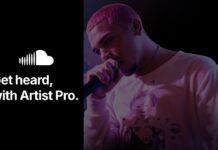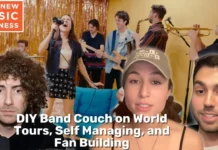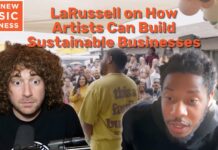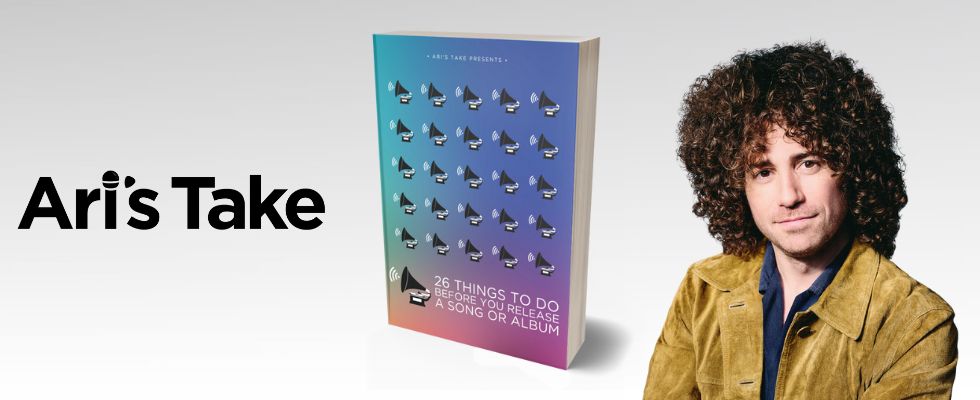Don’t ever book a show and just expect people will show up. They won’t. Additionally, if you book a tour of cities you’ve never been to and there’s no buzz about you in these cities and you aren’t playing these shows with established acts from each city, the tour will be a bust. No one will show up and your band will most likely break up.
So how do you get people to show up in a new city? There are many ways to approach this. A good way (and what every other music biz talking mouth will tell you) is to do show trades. This is good, but not necessary. I honestly can’t think of a single true “show trade” that I’ve ever done. A show trade is when you have a good draw in your hometown you bring in a band from another city to open your local headlining show and then you open their headlining show in their hometown. This works best if you both have similar draws in your respective hometowns. This is one way to break into a city, but it takes quite awhile doing this to become established in this city and it’s nearly impossible to book a tour this way.
The only reason to play a show is to perform in front of people. This seems obvious, but a lot of bands will book shows or tours just to have the dates on their website. While it is important to have dates on your website, it’s more important to have people show up to those shows. So, don’t book a show if you don’t have a good plan on how to get people out to the show.
+50 Is The Magic Number(Book a Headlining Tour)
+How I got 250 to my debut CD Release
Very few venues will pay you a guarantee to play their establishment unless you are proven in the area or are a cover band willing to fill 4 hours worth of music. If a venue or promoter gives you a guarantee then they are expressing that they have enough faith in your name and their promotional skills to get a big crowd to show up. If that’s the case, you should pull your weight a bit on your end for promo (always), but you don’t need to exert as much effort because they are taking the reigns.
+Free Bird! (Covers vs Originals)
Ok! So how do you actually get a tour going? Yeah, I took a while to arrive at the point here.
Let’s just assume that you have a draw in all of the cities you’re planning to tour to. I’m going to simplify this as much as possible and give you the bare necessities. If you want to get specific with your tour hit me up and we’ll chat.
+Don’t Be Afraid of the Phone (Booking)
Routing
The biggest mistake that young bands make is they don’t route properly. You need to make sure that the drives in between each show are manageable and that you keep backtracking to a minimum. No tour will ever have perfect routing, but cutting down on extraneous, unnecessary miles is a way to save gas and keep stress levels low.
A good rule of thumb is to try not to drive more than 6 hours on a show day. I’d say keep most drives around 4 hours on show day. There will be some days where you have to bust your ass and wake up super early and drive 8 hours for an early show. These days should be few and far between, if at all, but sometimes you just can’t help this. Too many long drives will increase the chances of burnout. And burnout from touring is one of the biggest reasons bands break up.
+Booking Your Own Tour: A How-To Guide
Promoters
In the early stages you will rarely work with a local promoter for your shows. Local promoters typically only work with agents. Promoters cover all the necessities in making a show happen in their city for an act. Promoters find and work with the venue to set up the night and typically “buy out” the venue for the evening. Promoters will typically give bands guarantees and/or a percentage of the door, whereas venues rarely give guarantees and nearly always give a percentage of the door.
+My Response to an LA Promoter
I’m more than happy getting just a percentage of the door when dealing with venues because if the night goes well we all win, but if people don’t come, I don’t want the venue to get hurt by having to pay me an undeserved guarantee. If I can’t bring out the numbers then I don’t deserve a guarantee. However, some venues act as their own promoters and will give you a guarantee (if you’re proven) and will promote the show, so it’s mostly on them to bring the crowd.
+Should You Pay To Play
It’s great to work with a promoter because it’s much less work on your end and you can get a guarantee, but until you’re at that level you have to be your own promoter and book through the venue. Also, you theoretically will make more money if you work with the venue directly and not the promoter because there are fewer people to pay out. However, a promoter ensures a guarantee and the main responsibility of promo is on their shoulders – not yours.
Venues
Venues in any city care about 1 thing: turnout. You must remember this when setting up a tour. The saying “the further you are away from home the more famous you are” isn’t applicable with venues. Just because you’re 2,000 miles away from your hometown means nothing to the venue if only 10 people show up. They may have just as well booked an 80s dance party and made 10x the amount of revenue than your band brought in for their night. Remember that if you are given a night at a venue (in any city) they are relying on YOU to bring the crowd. You may think that the venue is the local promoter for the show and will help get the word out. They’re not and they won’t. Most venues around the country will do nothing more than put up the poster in their window (that you send them) and maybe take out a tiny ad in the newspaper with their upcoming schedule. This will not bring people out.
+Can I Open Your Show? Maybe. But Probably Not
This understanding (or disconnect) between artists and venues is one of the greatest battles in the independent music world. Artists think venues should be promoting their shows and should help bring the crowd out and venues think that it’s the artist’s sole responsibility.
On one hand, the venue is local and knows how to get the word out in their town, but on the other hand, if they have music 7 nights a week you can’t expect them to promote every show; they would oversaturate their audience and people wouldn’t come out to anything. Venues typically put their efforts in promoting shows they know will do well. Your unknown band from nowheresville Iowa means nothing to them except that they need to hire a bartender, sound engineer and door person for the night.
If you want to get asked back and build a relationship with this venue you have to prove yourself.
Setting the Show Up
Most venues don’t want to do any work. Most venues are run by middle aged men who have been running the venue for 25 years and are burnt out by the business. They’re not hungry anymore like you are. Occasionally a new band comes through that gets their juices going, but they aren’t going to be excited about you from your YouTube video or Facebook page.
When you contact them the most important thing they want to hear is how many people are you going to bring out and do you have the bill set up. Remember they are running a business and, in this day and age, are almost always one slow month away from getting evicted or going out of business. The venue business is hard and venues go out of business all the time.
+50 Is The Magic Number (Book A Headlining Tour)
It’s best if you put a complete bill together to present to the venue. They will be much more receptive if you come to them with a bill containing 3 local acts (who have played there in the past) than if you come to them and say “Hey we really want to play your club. We’ve never been to your city before. Can you book some local openers for us?” Some venues will happily book an opener or two for you, but most of the time it’s when you already have a relationship with them or have a sizable draw in the city already.
+Don’t Be Afraid Of The Phone (booking)
Advancing
Once the show is booked, make sure you advance it at least once before the actual show date. This means, call the venue a week before the show and go over all of the details: load in/sound check time, door time, show time, curfew, compensation/door split, drink/food deal, lodging, your day of contact person, sound engineer’s name, and any other miscellaneous things you can think of to make sure the night goes smoothly.
Even if you think you have every thing spelled out in your confirmation email, they may have forgotten to tell you a couple things about how things work there or things may have just gotten lost in communication.
+What Do You Mean We Don’t Get Paid (Confirmation Email)
I had a show at a club in Nashville and we had an agreed upon load in/sound check time. Advance ticket sales for our show were light, so the club booker decided to book an “industry showcase” in the club, on the stage during the time we were supposed to sound check. I didn’t advance the show a week prior because I played the venue once before so I thought I knew how everything went. We showed up to a full house and a band on stage during our agreed upon sound check time. Once they finished there was about 30 minutes until our show started which gave us virtually no sound check. Bummer for us because we left sightseeing two hours early to make it to our scheduled sound check on time (and they bumped our sound check which is quite important to me).
+8 Things You’re Forgetting To Do On Show Day
You also don’t want to get into a situation where you thought they were providing a hotel for you, but then you show up and no one at the club knows about this and you’re left to crash on a fan-you just-met’s beer stained floor with a party happening with or without your participation until 5 in the morning.
Get all of these details hashed out in the confirmation email and then confirm them again in the advance one week before the show.


















